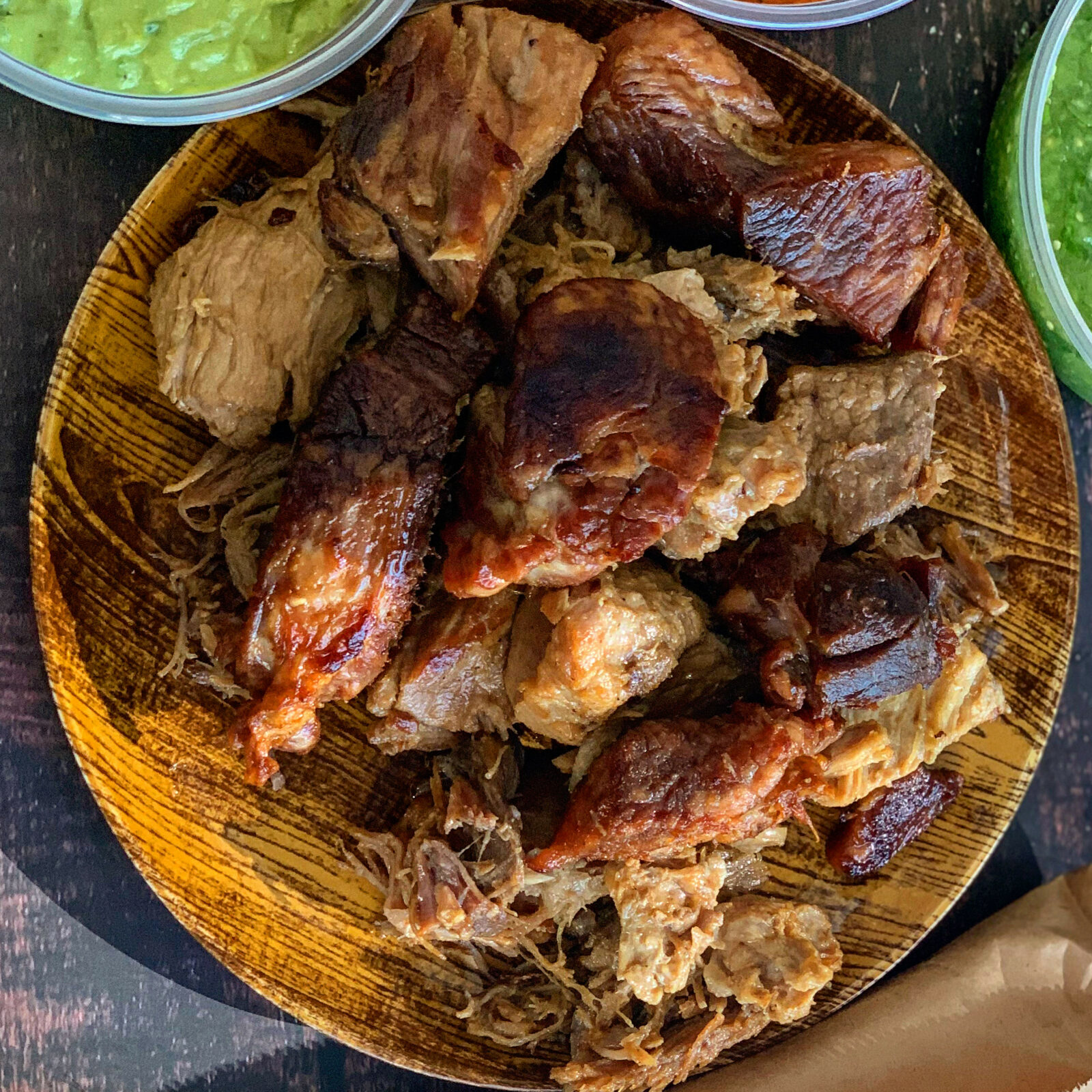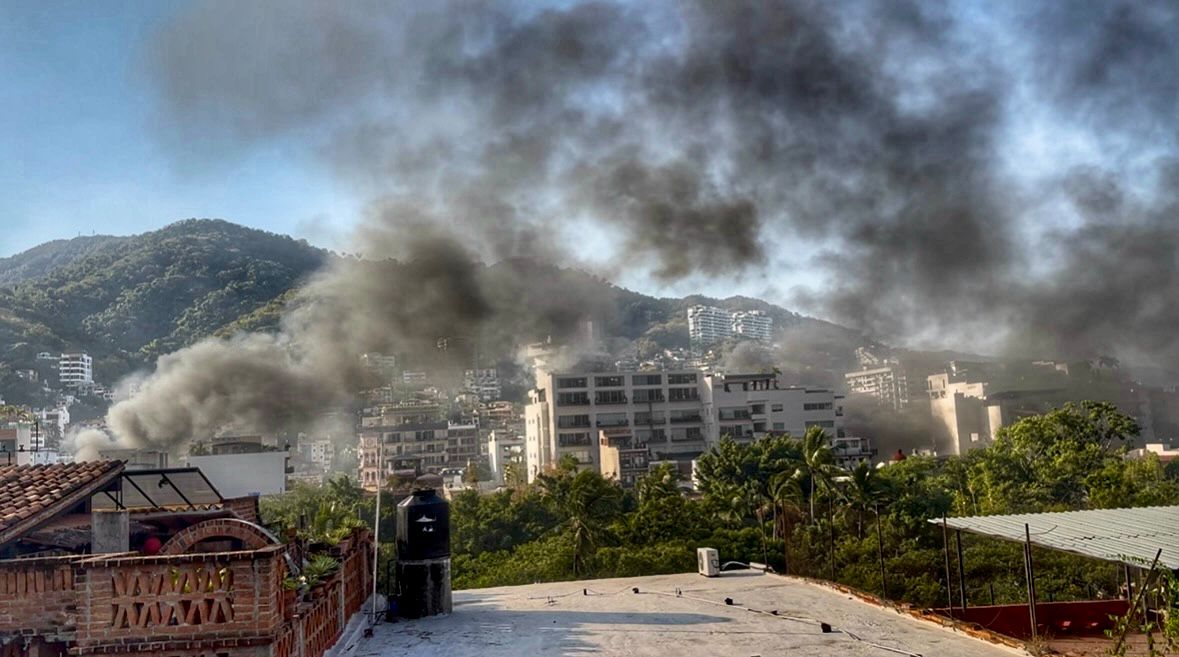ve been thinking about my grandfather’s carnitas for a while.”
Chef Ricardo Diaz remembers the days when his grandfather, Don Genaro, a bracero from Jerez, Zacatecas-turned Los Angeles restauranteur, would take him to work at his East L.A. carnitas stand, Guadalajara Carnitas, established in 1968.
“I started working there with my grandfather when I was nine years old. Every weekend and all through the summer, he’d wake me up at 3 in the morning and we’d go downtown to pick up what we needed for the restaurants,” said Diaz.
Those were his family’s El 7 Mares Mexican seafood restaurants, where Diaz worked during his youth in the 1970s and 1980s. “Some of those days, though, I had to work at Guadalajara Carnitas,” Diaz said. “I hated working there because it was so small and hot, especially in summers, but I loved eating there. I loved those carnitas.”
Fifty-three years after Don Genaro opened his first food stand in East L.A. and nearly 25 years after his death, his grandson is reviving those old recipes for EST. 1968, Chef Diaz’s new taco spot at Poet Gardens in Uptown Whittier.
Bracero origins
The UCLA Labor Center describes the Bracero Program as a guest-worker program that lasted from 1942 to 1964. “It grew out of a series of bi-lateral agreements between Mexico and the United States and allowed millions of Mexican men to come to the United States to work on short-term, primarily agricultural labor contracts,” according to the UCLA website.
Don Genaro Lopez Diaz was among these millions of Mexicanos. He developed his signature carne recipes while working as a bracero in the fields of Montana and Idaho.
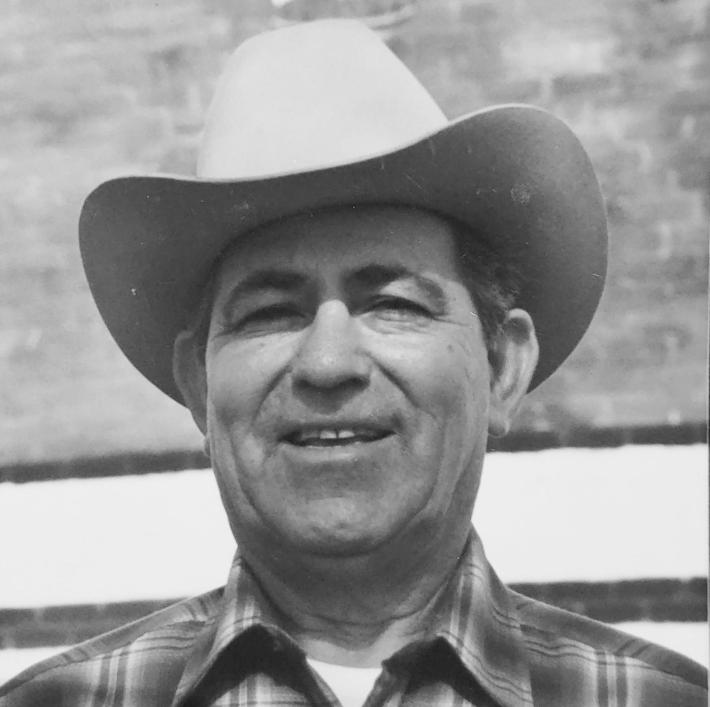
“As a bracero, my grandfather was in charge of cooking for the group,” explained Diaz. “He told me the story: They’d all get paid on Friday, and they’d go buy all the discards at the butcher, like calf’s feet and whatever bones that still had some meat on them. And on Friday night, my grandfather would make a big caldo from all of the bones, and they’d feast on one or two good meals before reheating the bones all week for broth.”
They are delicious. Mouthwatering even before the orange juice caramelization.
In 1961, Don Genaro brought his family from Jerez to East L.A., where they settled on Whittier Boulevard near Calvary Cemetery. Seven years later, Don Genaro and his son, Chef Diaz’s father, bought a little food stand and named it Guadalajara Carnitas.
“It was around a hundred square feet with a small kitchen that got hot, 95 to 105 degrees all summer long,” recalled Diaz. There, Don Genaro would churn out mouth-watering carnitas, birria de res, barbacoa, and espinazo de puerco—pork neck bones stewed in a red broth.
Don Genaro opened his carnitas shop a year after Los 5 Puntos opened in Boyle Heights and two years before the original Zamora Bros. Carniceria opened their doors in 1970. Los 5 Puntos and the Zamora Brothers are still in business, but Guadalajara Carnitas lasted until about 1984 when Don Genaro yielded his little stand to the family’s growing seafood restaurant business.
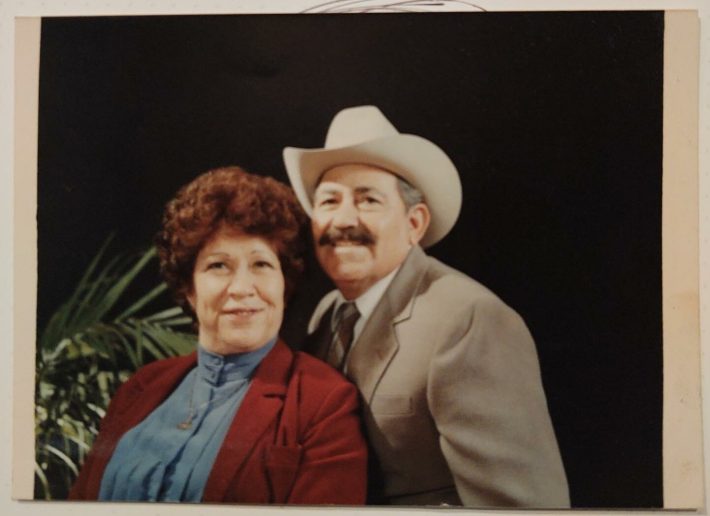
Diaz has thought about his grandfather’s recipes “for a long time,” and he missed those carnitas the most. “For a few years after my grandfather passed in 1997, I would ask family members about the recipes and if anyone remembered them.”
Chef Diaz worked on other projects over the years, but the pandemic shutdown gave him the chance to try and revive some of those childhood favorites he has never forgotten. “They’re not the exact same recipes,” said Diaz, “But they’re based on those smells and tastes I remember from my grandfather’s stand, ever since I was five years old.”
Just like abuelo made them
Carnitas vary somewhat by region. Michoacán-style carnitas are deeper in color and flavor, like the kind La Luz del Día has been serving on Olvera Street since 1959.
Diaz’s own take on Don Genaro’s old Guadalajara Carnitas recipes starts with four pounds of fresh pork, salt, and some manteca in a large stainless steel cazo. “Pork cooked in manteca and salt would be the basic recipe,” said Diaz. “It’s a confit. That’s what carnitas are.”
Each batch of four pounds takes about four hours to cook. They simmer low and slow in the manteca for a juicier, more savory flavor. Diaz adds orange juice at the end and gets the flame nice and high for the right amount of caramelization. The result: soft, chunky carnitas with just enough sweet crunch at the tips to complement the salty, succulent pork. Delicious.
Diaz began selling carnitas family meal packs during the pandemic. It includes over a pound of fresh carnitas, tortillas, two kinds of salsas, and guacamole. And it was a hit, selling out every time it hit the online menu. The carnitas venture allowed him to keep employees and help the business. Customers can still buy the carnitas meal pack or come into EST. 1968 at Poet Gardens for carnitas tacos.
One of several new concepts in Poet Gardens
The name EST. 1968 honors the chef’s grandfather and marks the year Don Genaro established his original carnitas restaurant. “As soon as we get more people in, we’ll have birria made with brisket, barbacoa, and carne asada, which my grandfather added to the menu in the 80s.”
Chef Diaz’s beef birria will be made with a rich red sauce. For the barbacoa, Diaz buys the lambs whole from Bakersfield and breaks them down at the restaurant. “My grandfather seasoned the barbacoa with salt and pepper. Here, we smoke agave leaves and then lay them on top so the charcoal-y juices drip onto the lamb while it’s cooking.”
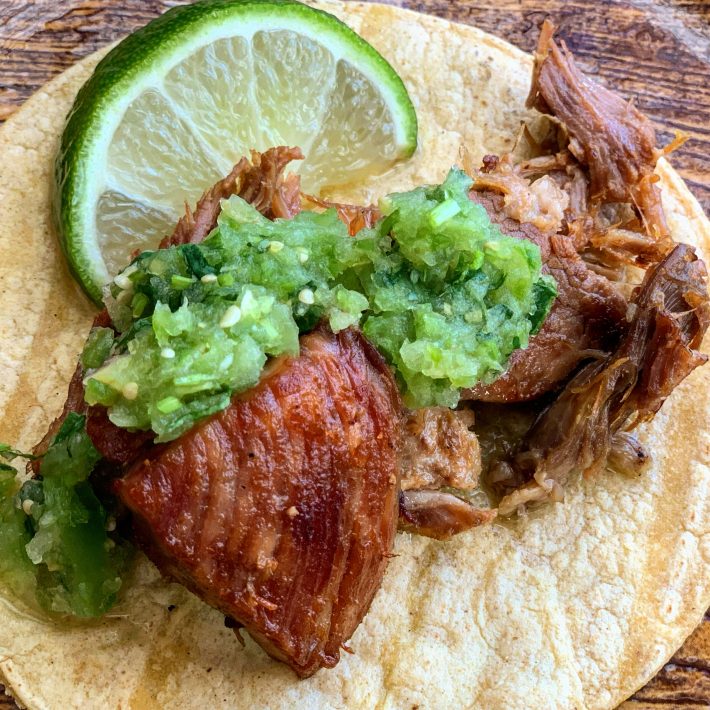
EST. 1968’s slow-cooked Mexican-style meats concept will replace the veggie-forward Tepezcohuite taco stand that was part of the first incarnation of Poet Gardens at Whittier Brewing Company. The new taco stand is the first step in revamping some of the menus at the cafeteria-style dining hall.
“The downtime got me excited about reconceptualizing Poet Gardens and getting new stuff here,” the chef added. The hot dogs, hamburgers, and cheese plates are gone. Diaz will keep the wood-fired artisan pizza at Faustino and add pop-ups for Indian food and a yakitori concept.
Ceviche and seafood will also return, along with an expanded wine garden and 1970s themed cocktail lounge near the fireplace. The drink list will feature creative cocktails using infused agave wines, rice wines, and other low-proof spirits. “The cocktails will be a nice addition to our brewery and wine program,” he said.
But he beams when he mentions EST. 1968, his grandfather, and those carnitas.
“There are some good carnitas out there,” Diaz said. His favorite, he told me, are from the original Zamora Bros. on Cesar Chavez Avenue.
“But I think these here,” said Diaz, offering me a fresh chunk from the cazo, “Are pretty special.”
They are delicious. Mouthwatering even before the orange juice caramelization. I smile and imagine that Don Genaro, his dear grandfather, would be proud.
